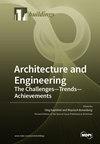Exploring the Readiness of Organisations to Adopt Artificial Intelligence
IF 3.1
3区 工程技术
Q2 CONSTRUCTION & BUILDING TECHNOLOGY
引用次数: 0
Abstract
Front-end planning (FEP) is the first step in identifying a problem and analysing a project’s goals and the business case for management to decide whether to proceed with the project. Despite its crucial significance, projects are still underperforming and failing to achieve their objectives. Current research suggests that the emergence of AI promises significant advantages to organisations, particularly for FEP. The purpose of this paper was to explore the readiness of organisations to use AI in the FEP phase to enhance project outcomes. The technology–organisation–environment (TOE) framework was used to evaluate factors influencing the readiness to adopt AI in construction projects in Saudi Arabia. Thirty interviews were conducted with public and private stakeholders in the sector. The knowledge and insight gained from the viewpoints of key decision makers and practitioners allowed for an examination of the main factors impacting the adoption of AI, and any challenges and barriers to it. Findings showed that the support of the government and senior management, and the attitudes and behaviour of employees, were the top three factors in the framework that facilitate the readiness of organisations to adopt AI. Government support influences external support and enhances competitive pressure between organisations; senior management support influences the absorptive capacity and maturity of an organisation; and employees’ attitudes and behaviours are the main contributors to organisational readiness. The proposed framework will assist policymakers in using these factors to overcome the challenges of AI adoption. Additionally, creating strategies aligned with Vision 2030 focuses not only on choosing the best technology to implement but also on how employees can benefit from it.探索企业采用人工智能的准备情况
前端规划(FEP)是发现问题、分析项目目标和商业案例的第一步,以便管理层决定是否继续实施项目。尽管前端规划至关重要,但项目仍然表现不佳,无法实现目标。目前的研究表明,人工智能的出现有望为组织带来巨大优势,尤其是对财务执行计划而言。本文旨在探讨各组织是否准备好在财务和预算阶段使用人工智能来提高项目成果。本文采用了技术-组织-环境(TOE)框架来评估影响沙特阿拉伯建筑项目采用人工智能准备程度的因素。对该行业的公共和私营利益相关者进行了 30 次访谈。从主要决策者和从业人员的观点中获得的知识和洞察力有助于研究影响采用人工智能的主要因素,以及人工智能面临的任何挑战和障碍。研究结果表明,政府和高级管理层的支持,以及员工的态度和行为,是促进企业做好采用人工智能准备的三大因素。政府的支持会影响外部支持并增强组织间的竞争压力;高级管理层的支持会影响组织的吸收能力和成熟度;而员工的态度和行为则是促进组织做好准备的主要因素。所提出的框架将有助于决策者利用这些因素来克服采用人工智能所面临的挑战。此外,制定与《2030 年远景规划》相一致的战略不仅要关注选择最佳技术来实施,还要关注员工如何从中受益。
本文章由计算机程序翻译,如有差异,请以英文原文为准。
求助全文
约1分钟内获得全文
求助全文
来源期刊

Buildings
Multiple-
CiteScore
3.40
自引率
26.30%
发文量
1883
审稿时长
11 weeks
期刊介绍:
BUILDINGS content is primarily staff-written and submitted information is evaluated by the editors for its value to the audience. Such information may be used in articles with appropriate attribution to the source. The editorial staff considers information on the following topics: -Issues directed at building owners and facility managers in North America -Issues relevant to existing buildings, including retrofits, maintenance and modernization -Solution-based content, such as tips and tricks -New construction but only with an eye to issues involving maintenance and operation We generally do not review the following topics because these are not relevant to our readers: -Information on the residential market with the exception of multifamily buildings -International news unrelated to the North American market -Real estate market updates or construction updates
 求助内容:
求助内容: 应助结果提醒方式:
应助结果提醒方式:


